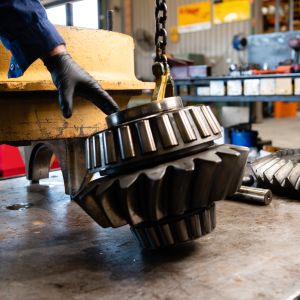Free public domain CC0 photo.
As a society, we tend to be slow learners. After every boom, there is an inevitable bust. And the worst affected when the ride comes to an end is those who locked themselves in at the peak. Whilst it’s very tempting for businesses to grab every opportunity, especially when securing scarce resources, are you locking yourself in to unsustainable cost bases? Just look at the tug of war related to employment, with the rope potentially becoming a noose around the businesses neck.
The most important resource in most businesses is its people. Every successful business I know is currently grappling with a shortage of people across all levels. Without addressing the shortfall, eventually it leads to burn out amongst the established core and/or declining service levels. But bringing on board the people with the wrong fit in desperate circumstances is like injecting a cancer that will affect morale and productivity. Businesses that moved towards working from home models will be feeling this more than any others – how can you possibly instil your company culture if new employees aren’t immersed and guided into your systems and philosophies?
Covid has given one lasting change to our society. People from all generations have re-evaluated their life priorities, and in many cases the scales have shifted from “work” towards “life”. And who can blame anyone for making hay whilst the sun shines? Probably a very good time to remind people of the LIFO rule: Last In, First Out. Every good employer knows the importance of looking after your employees. However, there must also be a realisation that at the end of the day there is ultimately a customer that pays for it all.
About a year ago, I needed to buy a part for our lawn mower. There are two categories of lawn mower customers: those who make a living out of it, and those who do their own. I don’t know the proportion of those two markets, but looking at the ranges in stores, I’m betting the domestic market is many times larger. So imagine my surprise when I struggled to find any mower retailer that was open on a Saturday afternoon. Surely Saturday and Sunday would be peak periods. The problem for these businesses was that they struggle to find staff that wanted to work weekends, and that despite heading towards 24/7 day expectations from customers, employment laws stipulate that the employer has to pay overtime rates for these days. Combine that with that at the time, supply chain shortages meant that any product that came in was sold anyway.
The above shows a typical cycle. What happens next is that people don’t go to the local mower shop. We’ve learned that we can buy the part online or through a phone call and get it shipped. Or we don’t repair our mower and instead buy a cheap poor quality version from a large hardware house that last a couple of years before we throw that out too.
Meanwhile, businesses like the above mower example that lost their way and forgot their reason for being have painted themselves into a corner. Likewise, café’s and restaurants are now closing due to staff shortages on days where they would have normally been open. The rent per week stays the same, so the viability of the business becomes questionable. At a recent attempt to have a for us unusual Sunday morning breakfast out, had to go to 5 cafes until finally finding one that didn’t just have pre-prepared croissants to serve up but provided an actual menu selection. The returns to the owner (who is finding themselves working longer and longer to cover the shortages) is falling. Prices can only be pushed up to a certain level, and at some point the owner will pull up stumps because the reward isn’t there for the risk and effort.
A common reaction in the mean time is to poach experienced staff from elsewhere. To do so often means offering a carrot. Heard several radio ads related to our industry offering substantial “welcome bonuses” in the first pay. These can never be clawed back when the transient employee shifts to the next better offer, so are a sunk cost.
But an even bigger hang over looms for companies that don’t consider the lasting legacies of making certain structural changes. Saw a company’s service vehicles with signs on the back offering new employees 9 day fortnights and extended leave arrangements. Presumably (unlike banks fighting for new customers) these employers had to first offer these same conditions to existing employees. So where previously 10 employees did 10 days work each, the company now needs more than 11 people to complete the same amount of work, adding further to the shortages. Plus needing another vehicle and all the associated costs of running a “larger” service operation.
When the tide inevitably turns, how do you wind back the pay levels and structures that the business has locked itself in to?
So, what’s the answer? For businesses and employees alike, buckle up. There are more changes to come, don’t know where, don’t know when. Whilst you can’t hold back the tide, eventually it turns. We need to find better, more effective ways of doing things. Doing more with less requires productivity improvements. Changes to how processes or jobs are done, improvements in technology, doing away with unproductive tasks, and concentrating on the money-making core activities has never been more important.
A rope can be used for many things. It can pull you out of trouble. But it can also be tied into a noose that eventually strangles the business.
Words from the wise
Nooses are so unreliable, they always leave you hanging…
Nothing is impossible. Even the word itself says “I’m possible”.
Live by the KISS principal – Keep It Simple, Stupid.
As always, onwards and upwards!
Fred Carlsson
General Manager




